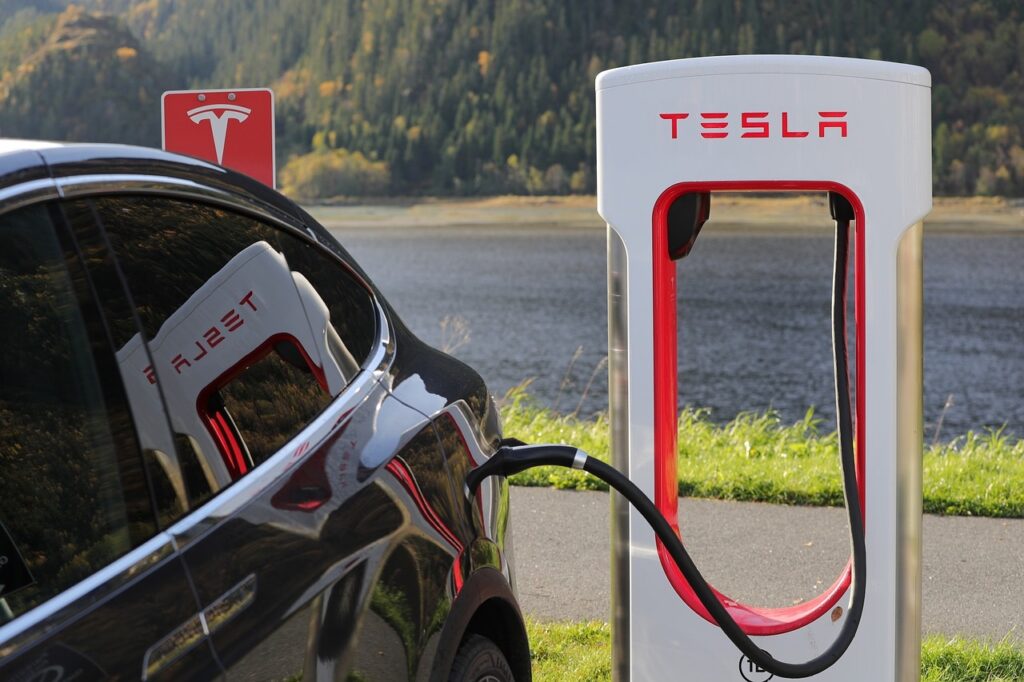Tesla, one of the world’s leading electric vehicle manufacturers, has recognized the potential of the Indian market and sees it as a key player in its global expansion strategy. With a population of over 1.3 billion people, India has a huge demand for affordable and sustainable transportation solutions. In addition, the Indian government has been offering several incentives to electric vehicle manufacturers, including tax exemptions and subsidies, further bolstering the country’s potential as a lucrative market for Tesla. By investing in India, Tesla aims to capitalize on the growing demand for electric vehicles in the country, while also contributing to the government’s vision of a greener future.
Tesla’s Interest in India
For Tesla, India presents a potentially lucrative market, given the country’s growing middle class and rising demand for luxury cars. However, the company may face a number of challenges in the Indian market, including a lack of significant charging infrastructure and relatively high import tariffs. Despite these challenges, Elon Musk, the CEO of Tesla and SpaceX has previously stated his enthusiasm for the Indian market, describing it as a “huge potential market” for Tesla. With India’s Prime Minister Modi’s support and approval, it appears that the company may be moving closer to realizing its ambitions in India.
Musk has expressed his belief that India holds substantial potential for a sustainable energy future and wants to invest in the country’s renewable energy industry, including the use of solar power and the integration of stationary battery packs and electric vehicles.
Musk also has plans to bring SpaceX’s innovative satellite internet service, Starlink, to India as he is very optimistic about India’s commitment to promoting investment in India, both in the electric mobility sector and the rapidly expanding commercial space industry.
During the meeting in New York City on June 20, 2023 – as part of Modi’s U.S. visit – Modi extended an invitation to Musk to explore further investment opportunities in India for electric mobility and the burgeoning commercial space sector.
International Space Cooperation
With one of the world’s largest populations and rapidly growing urban centers, India is uniquely positioned to benefit from increased investment in sustainable energy and transportation. India also aims to allow select U.S. companies to work with Indian firms in the space industry. This move follows India’s decision to open up private launches for the first time last year, with the goal of increasing its market share fivefold within the next decade.
Meanwhile, after visiting India and meeting with government officials in May 2023, Tesla executives expressed interest in establishing a manufacturing base for cars and batteries in the country. Tesla will likely choose a location for its new factory by the end of this year and described India as an interesting option.
Incentivizing the Future: Promoting Electric Vehicles in India
The Indian government has been actively promoting the use of electric vehicles (EVs) in the country as a means to reduce air pollution and dependency on fossil fuels. To encourage the manufacturing, sales, and usage of electric vehicles in the country, the government has introduced several incentives for electric vehicle manufacturers. Below are some of the incentives provided by the Indian government.
- FAME II Scheme: The Faster Adoption and Manufacture of Electric Vehicles (FAME) II scheme was launched by the Indian government in 2019 to promote the adoption of electric vehicles in the country. Under this scheme, the government provides a subsidy ranging from INR 7,500 ($100) to INR 62,500 ($800) for electric two-wheelers, three-wheelers, and four-wheelers.
- GST exemptions: The Indian government offers a GST (Goods and Services Tax) exemption on electric vehicles, which is currently at 5%. This exemption is aimed at reducing the financial burden of purchasing an electric vehicle for customers.
- Income tax exemptions: Electric vehicle manufacturers in India are eligible for an income tax exemption of up to INR 1.5 lakh ($2,000), under Section 80EEB of the Income Tax Act. This exemption is aimed at encouraging more manufacturers to produce electric vehicles in the country.
- Import duty exemptions: The Indian government has exempted import duty on lithium-ion batteries used for electric vehicles, which makes them more affordable and accessible for manufacturers. This exemption has led to a reduction in the cost of electric vehicles in the country.
- Reduction in road tax: Various Indian states have offered incentives to electric vehicle owners, such as a reduction in road tax and registration fees. For instance, Delhi has reduced the road tax for electric vehicles to 5% compared to 12.5% for petrol and diesel vehicles.
- Research and development incentives: The Indian government has set up a Rs 10,000-crore ($1.4 billion) fund to support research and development in the electric vehicle industry. This fund is expected to provide a push to innovation and development in the electric vehicle industry.
India increasingly replaces China
As a result of the ongoing trade tensions between the United States and China, some U.S. companies are beginning to explore other options as a manufacturing base, such as India. China has been a go-to location for many businesses due to its low labor costs, vast infrastructure, and large consumer market. However, with the threat of tariffs and sanctions looming over the relationship between the two countries, some companies are hesitant to continue relying on Chinese manufacturing.
Tesla is one of these companies, as it has faced significant challenges when it comes to expanding into new markets. When the electric carmaker first considered entering the Indian market in 2019, it was met with high import taxes that made it difficult to compete with local manufacturers. This highlights the difficulties companies face when trying to enter new markets and expand their business globally. Despite some obstacles, the trend of US companies moving their manufacturing operations from China to India seems to be on the rise.
Do you have a question about this article or about doing business in India, please get in touch with us here or email us at info@nyasa.solutions.

